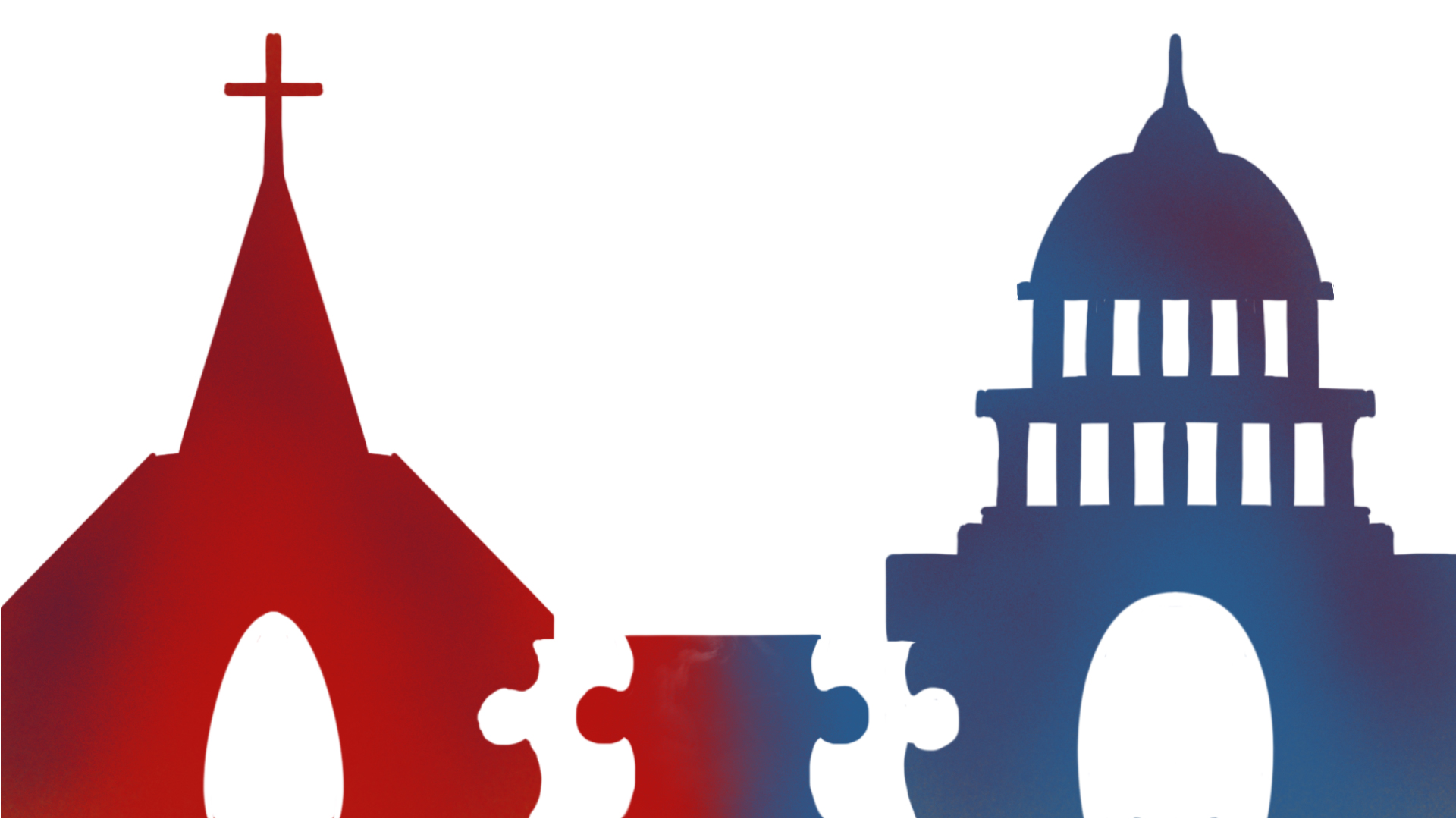
George Holyoake’s 1896 publication English Secularism describes secularism as follows:
“Secularism is a code of duty pertaining to this life, founded on considerations purely human, and intended mainly for those who find theology indefinite or inadequate, unreliable or unbelievable. Its essential principles are three: (1) The improvement of this life by material means. (2) That science is the available Providence of man. (3) That it is good to do good. Whether there be other good or not, the good of the present life is good, and it is good to seek that good.”
“Secularism” is a controversial concept in Arab intellectual circles, and has occupied a considerable part of dialogue since the beginning of the twentieth century.
The debate began with the term of the name, and now extends beyond its influences on Arab social structures to the contemporary Arab culture and consciousness.
However, it is a debate that is constantly making us go in circles, as Western societies, such as Europe, move into a new stage of secularism that aims to achieve an entirely consistent and harmonious society.
Secularism began in Europe; however, “secular” practices preceded this evolution. The first recorded “secular practice” took place in 1648, after the Thirty Years’ War in Europe, when ownership of church land was transferred to the state.
In time, “secularization” came to refer primarily to the process by which the church’s influence on government, institutions, ideas, and behavior decreased.
As for the word secularism, it was created by the English writer and journalist George Holyoake in 1851, by combining the Latin word “saeculum”, meaning “length of time roughly equal to the potential lifetime of a person” or a “generation”, which was used in Christian Latin to mean “the world” (as opposed to the otherworldly), and the French word “séculier“, meaning “to live in the world and belong to the state”.
Secularism grew in Western Europe with the rise of capitalism and the increase in the power of states. It developed with the emergence of the roles of other secular forces that appeared predominantly in the West, which in turn became a revolution of scientific theories that became leaders in secularism.
Secularism has never been against religion like most of its opponents claim. It is rather against the tyranny of religious establishments using the power they have over the people.
The secular movement does not just include atheists and those against religion. On the contrary, more often than not, followers of secularism were very religious.
We can use Protestantism as an example. It is a secular movement, even though it initially contributed to the increase of religiosity and religious affiliations, both among Protestants and Catholics who influenced or rejected its reforming movement.
Ultimately, the multiplication of sects combined with Europe’s weariness of religious wars helped spread secularism.
Moreover, these factors prompted the rejection of the Church’s intervention and the right it claimed to intervene with the affairs of the people. Religious tolerance also began to grow, with governments recognizing more religious and non-religious beliefs.
The emergence of national states also affirmed secularism, as intervention or loyalty to supranational institutions was deemed to conflict with the priorities and sovereignty of the “national state”.
Furthermore, the socio-economic modernization and the Industrial Revolution also contributed to establishing equality in rights and duties.
National states were struggling to remove the church’s hegemony over schools, law, and social institutions, but they succeeded. By the end of the nineteenth century, the elite in various fields, such as biology (Charles Darwin and Thomas Huxley) and sociology (Auguste Comte, Émile Durkheim, Max Weber) were generally secular. Human rights movements also began, including the feminist movement that demanded women’s rights to property, work, political participation and self-reliance.
All these actions, calls and movements were decisive factors in shaping modern Europe and its pioneering model of prosperity, modernization, development, respect for law, human rights and freedoms.
Meanwhile, in the Arab world, secularism failed to spread as rapidly, as many considered it as “against religion” and a rejection of the principles of Islam. Many considered it the first step towards immorality and deterioration of values in their societies.
Modernity was also rejected because some believed it would lead to secularization.
The opponents of secularism often invoke the failure of the secular experiences of some Arab countries, neglecting that the main reason for their failure was not because of the concept of secularism itself, but due to the fact that the tyrannical Arab regimes tried to impose secularism by force. They made secularism lose its basic essence – freedom, and turning away from backwardness, poverty, and instability–which is the ideal environment for extremist ideologies.
Today, Europe is experiencing a new development in its concept of secularism, caused by the great religious and cultural diversity it has as a result of immigration. Europeans are no longer just Catholics, Protestants and Jews, but also Muslims, Hindus, Buddhists, and many others.
While secularism in the past was concerned with reining in the religious establishment and separating it from civil and political affairs, it is now more concerned with managing diversity in a fair and democratic manner that guarantees social, political and religious reforms and freedoms. A “new secular” is forming in liberal states today, one that is concerned with diversity and engaged in issues of multiculturalism.
The goal? Modern society and secularism not leading to the decline of religion, nor to the deterioration of the values of society.
Let’s take Finland, Norway and Switzerland for example: These three are the most stable and cohesive countries in the world, and according to the Fragile States Index, the annual report issued by the United States Think Tank the Fund for Peace and the American magazine Foreign Policy since 2005, their stability is the most sustainable in the world.
These countries are the ‘ideal’ for prosperity, respect for freedoms, rights and economic justice. Even being secular countries, religion still maintains its place. According to estimates of the World Factbook, in 2016, about 71.5% of Norwegians belong to the Church of Norway (Evangelical Lutheran).
Perhaps it is time to reconsider the accusation of ‘secularism being against religion’. God sent His divine messages thousands of years ago, and they are still standing and continue to illuminate the path for the believers and lead them to the right path. This will stay regardless of any movement that has, or will appear.
Supporting religion cannot be through extremism or imposing it on others, nor by hostility to civil movements. A firm belief can only be strengthened by acceptance, tolerance and love.
We cannot deny the role that Western secularism played in the spreading of Islam in the northern hemisphere, and preserving the rights of Muslims to practice their worship and rituals such as: building mosques throughout the West.
When we demand the West to respect the rights of Muslim immigrants, and to preserve their freedom to practice their beliefs, we base these demands on their secularism, therefore we have no right to fight secularism in our countries. If we reject the western far-right that is hostile to immigrants, especially Muslims, then why are we adopting a similar stance in regards to secularism?
Isn’t secularism a better option than political Islam? Isn’t it better than, for example, Turkey’s exploitation of Islam to achieve political goals at the expense of the Muslims themselves? Isn’t it better than what is happening in Iran, which claims to be an “Islamic republic”, while its levels of drugs and alcohol addiction have reached record levels?
On the other hand, Western countries have managed to get rid of the name “the Christian world”, while they still know us as “the Islamic world” or “Islamic countries”. Our pride in this name does not negate the fact that it reduces our identity to one component, while we have always taken pride of our rich and diverse society, and our civilization that was able to absorb all past civilizations and become beacons that illuminated the path for all the civilizations that followed.
Many of those who reject secularism claim that it is a “Western” product that does not suit us and our values. This may be true to some extent in regards to some of their concepts, procedures, or practical steps.
So, how do we move forward? Do we stay standing in our position and let the development and modern society era pass us by? Or do we make our own “secularism”, one properly identified for our societies (identified by goals), including what we want to achieve as a tool to limit politics to politicians, to stand against anyone who uses religion for aggressive ends, to respect and coexist with each other, to promote cultural pluralism in our Arab world, and to fight all forms of extremism.
This is the secularism that will prevent the atrocities that happened in Lebanon or Iraq from happening again. It will ensure that terrorist organizations lose any chance for recruitment and propaganda, preserving some of the East’s main cultural components, such as Christians and Jews. This secularism will protect religion from all forms of intolerance.
Secularism, in my opinion, will help every Arab feel free and secure as a first-class citizen in his country.




